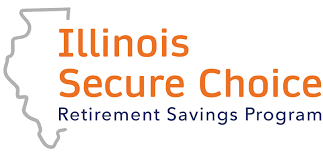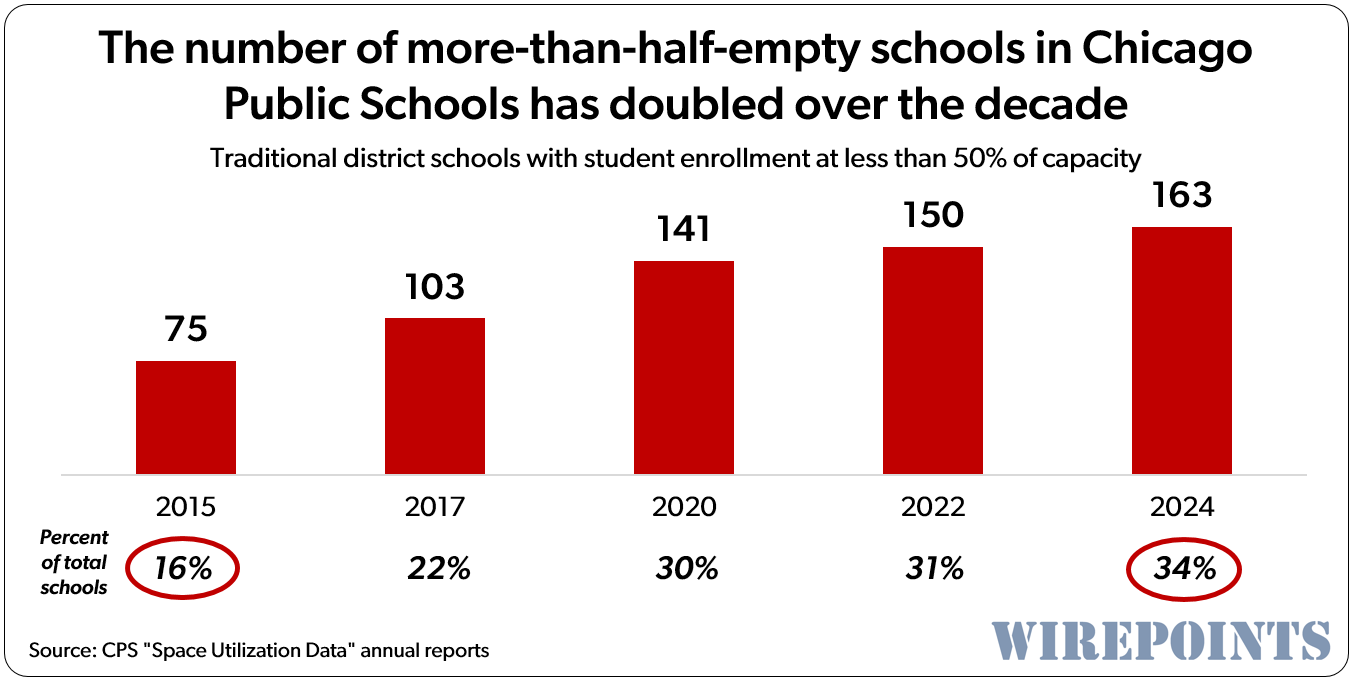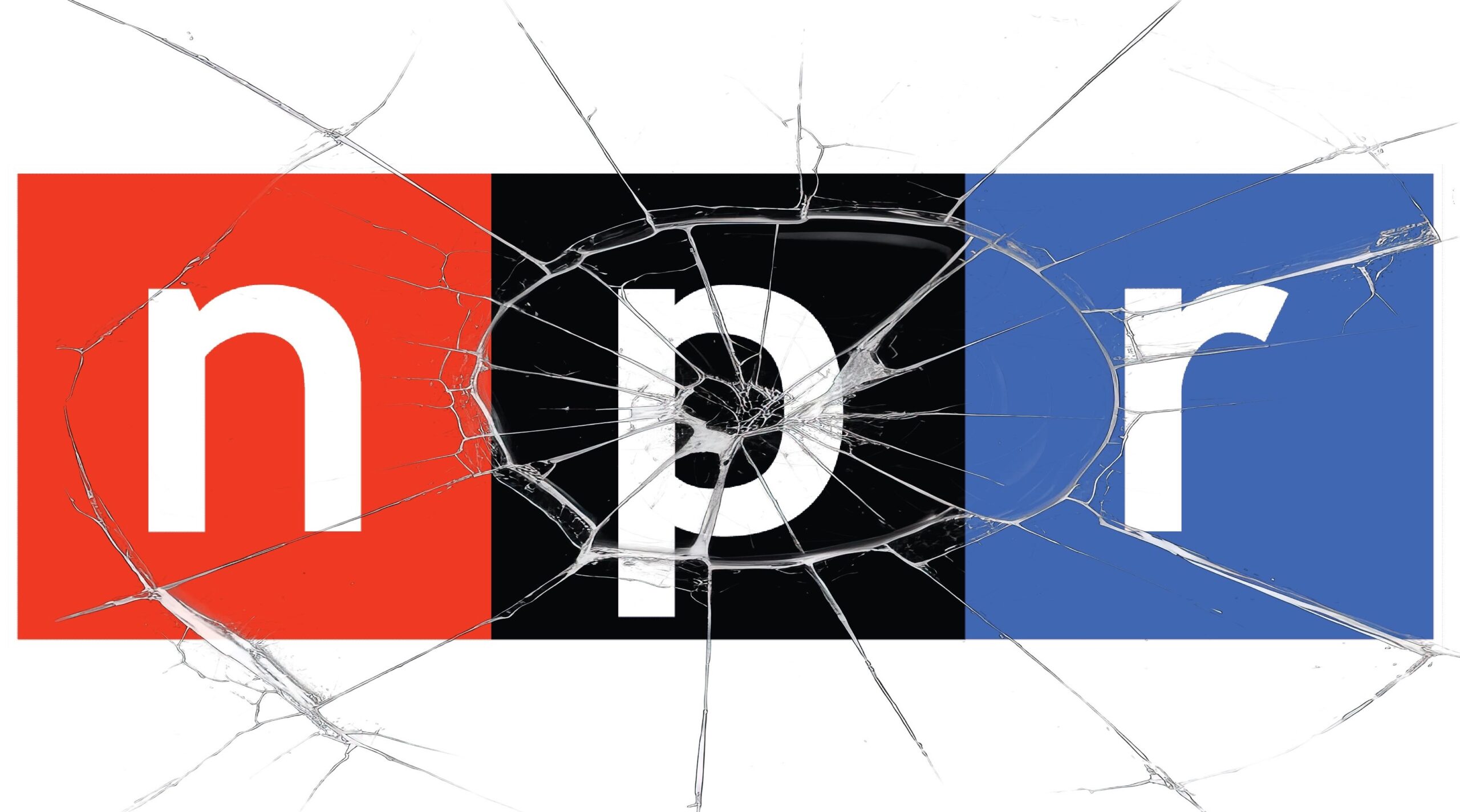By: Mark Glennon*
“Illinois Secure Choice Retirement Plan Succeeds in Fighting Nationwide Retirement Crisis.”
That’s the headline on Illinois Treaurer Micheal Frerichs’ press release last week marking the first anniversary of the program. Frerichs followed up with a news conference, and many stories around the state reported the story as he told it.
But look at his own numbers in context. They show that the program is failing.
 First, a little background. Secure Choice is a simple retirement savings option intended for workers in smaller businesses that often don’t have employee retirement programs. It’s really just a Roth IRA, a common program available nationally under which contributions are not deductible but earnings on the account are tax-free. Contribution limits for Secure Choice are generally $6,000 per year if you are under 50, like a Roth IRA.
First, a little background. Secure Choice is a simple retirement savings option intended for workers in smaller businesses that often don’t have employee retirement programs. It’s really just a Roth IRA, a common program available nationally under which contributions are not deductible but earnings on the account are tax-free. Contribution limits for Secure Choice are generally $6,000 per year if you are under 50, like a Roth IRA.
The law creating Secure Choice passed in 2014 with bipartisan support. It requires employers in business for at least two years and with at least 25 employees to offer a retirement savings plan or participate in Secure Choice. Workers may opt out, but the default option when starting is inclusion in the program. It was rolled out over the last 12 months and is administered by the Illinois treasurer’s office.
Results? Thirty-three thousand new workers set aside $8.5 million in retirement savings during its first year of operation, Frerichs boasted.
Sorry, Treasurer Frerichs, that’s a pittance.
Consider Frerichs’ numbers in proportion to the number of workers in Illinois and how much they earn. Let’s look just at those reporting $100,000 or less in income, since higher earners less often face a retirement problem.** Over 4.6 million tax returns per year are filed annually in Illinois showing $100,000 or less in adjusted gross income, so only about seven-tenths of one percent are in Secure Choice. Their average contribution for the year was only $260.
And they reported total adjusted gross income over $290 billion. That means only about three-thousandths of one percent of their income went into Secure Choice!

That’s failure, not success.
Why so low?
In fairness, employers were transitioned into the program gradually over the last twelve months, as explained in Frerichs’ press release. Better numbers therefore probably can be expected next year. And perhaps enrollment in Secured Choice is hampered by fears about the state’s financial condition. That shouldn’t be a concern because Secure Choice assets are legally segregated.
But there are other defects undoubtedly handicapping the program, particularly its fees, and those problems will persist.
Secure Choice charges an annual fee of $0.75 for every $100 in the account, which is unheard of in the industry for Roth IRAs. It may not sound like much, but it is, thanks to the power of compounding. If you put $500 per month into the account for thirty years, it would reduce your pot at the end by over $60,000.
You could avoid that fee entirely by opening a plain vanilla Roth IRA with exactly the same benefits at just about any broker.
You’d also get a much broader range of investment options. Secure Choice offers just three index funds, plus various targeted date retirement plans like brokers also offer. The $0.75 fee that’s the problem for Secure Choice isn’t about management fees on those underlying investments. Those seem consistent with the investment brokers offer, though I haven’t scrutinized them.
**********
When the legislation for Secure Choice was pending, the concept didn’t bother me. Most Americans are indeed saving too little for retirement. Though I didn’t like sticking employers with another administrative burden, an optional, simple, cheap program seemed like a reasonable step.
What I forgot was what we too often forget. A nice idea is one thing, but execution is another. Especially with government. Especially in Illinois. With Secure Choice, Illinois botched it again.
*Mark Glennon is founder of Wirepoints.
**Numbers on tax returns and AGI based on stratification data were obtained by Wirepoints through Freedom of Information Act request to the Illinois Department of Revenue.

 A set of state lawmakers want to extend CPS’ current school closing moratorium to February 1, 2027 – the same year CPS is set to transition to a fully-elected school board. That means schools like Manley High School, with capacity for more than 1,000 students but enrollment of just 78, can’t be closed for anther three years. The school spends $45,000 per student, but just 2.4% of students read at grade level.
A set of state lawmakers want to extend CPS’ current school closing moratorium to February 1, 2027 – the same year CPS is set to transition to a fully-elected school board. That means schools like Manley High School, with capacity for more than 1,000 students but enrollment of just 78, can’t be closed for anther three years. The school spends $45,000 per student, but just 2.4% of students read at grade level.
 Hopefully, all media will get the message, in Illinois, too.
Hopefully, all media will get the message, in Illinois, too. Ted joined Tom Miller of WJPF to talk about Illinois’ highest-in-the-nation property taxes, why lawmakers don’t want to touch the tax’s cost drivers, just how much Illinoisans’ tax burden has grown over the decades, why Gov. Pritzker failed to meet his promise to reform property taxes, and more.
Ted joined Tom Miller of WJPF to talk about Illinois’ highest-in-the-nation property taxes, why lawmakers don’t want to touch the tax’s cost drivers, just how much Illinoisans’ tax burden has grown over the decades, why Gov. Pritzker failed to meet his promise to reform property taxes, and more.
It is an economic AXIOM that you always will cause a rise in the quantity of a product if monetary demand for it rises. THINK about that in relation to every. single. thing. Anti-poverty program spending CAUSES more “poor people” to be supplied. Programs to absolve adults of the need to care for their kids means more uncared-for kids. Programs to absolve adults of the need to plan for their future means more who DO NOT PLAN at all. It’s painful (if not impossible) for most people to understand, but EVERY attempt to ameliorate suffering or hardship of someone, young… Read more »
The best day of your life is the day you move out of Illinois. A U-Haul will solve the problem. Call a mover today and start a better life for you and your family. Illinois is DOA, no hope. Even the cops, firemen and teachers with the HUGE PENSIONS are running out of Illinois.
Last man standing will be a dead man. 83 Degrees and Sunny in South Florida, NO state income taxes. Freeze you a$$ of in poverty or start a great new life.
Wonder which pollitically connected broker was awarded contract, (like misrow). Also are the fund choices all eco friendly/ social responsibility funds that ferichs is always squalking about
Want to really encourage participation? For every $1 invested in Secure Choice, the contributor gets to deduct $3 from his state taxable income. Would result in a 10% savings on your state income tax to boot!
What say you, Mr. Frerichs?
“So far, 10 states have passed legislation authorizing retirement plans of some kind to help private-sector workers who may not have access to a plan through their employer. These include Oregon, Maryland, Connecticut, New Jersey, New York, Washington, Vermont, Illinois, Massachusetts, and California. Many other states are considering legislation that would allow them to offer plans to private-sector workers.” A pretend accomplishment for Democrat governors and legislators. Rewards a few favored investment brokers and law firms. No doubt the brainchild of some investment adviser industry association Creates a new bureaucracy. May result in some plaintiff’s litigation in a year or… Read more »
There is no news that government botches almost everything it touches.
Hence, two questions.
1. Why this well presented example of good intentions turned silly is not on the top of the major news?
2. What can we do, without government coercing powers, to entice more people to save for retirement.
“Entice more people to save for retirement.” Sadly, I believe your entire premise is false. You CANNOT protect people from their own folly. All it does is create moral hazard. Moral hazard is unavoidable and constitutes the “unintended consequences” of each and every attempt to ameliorate other people’s hardships, especially when those hardships occur at the intersection of Reality and Their Choices. The very worst thing you can do is “protect” people from the consequences of their own actions. By spending to “alleviate poverty” you will get MORE poor people, and by telling people that they’ll be taken care of… Read more »
The real failure is that the contributions are not tax deferred. I know it’s a Roth but as mentioned anyone can buy a Roth. But getting into a tax deferred plan that goes higher and defers more than an annual IRA is huge. Also there is no provision mentioned for employer match. And a management fee, right on top of all the mutual fund loads? Silly, unless all the underlying funds are ETF, which they are probably not. This is just a big high commission scheme.
What Illinois Treasurer Micheal Frerich is really saying is the program has been a success for the administrator of the program who are making a lot of $$$$ off the program. Forget about those contributing to it. Based on the State of Illinois’ past experience with pension, these people will probably end up with a negative return.
I voted against the program because I was intimately aware of the State of Illinois’ financial blunders. A state that was all but insolvent was telling employees and workers what to do with their money! #HardPass
Ron, we can count on our fingers the number of legislators who have an ounce of financial sense. Still fewer who are honest enough to speak up about it. One finger got chopped off when you left the General Assembly.
Mark you are spot on. Think about it. Billions and Billions of taxpayer $$$ are paid into pension funds thru property tax’s/pension pickups/etc. How many of our lawmakers are certified financial planners/registered brokers/money managers or are any professional educated people with the knowledge of handling of vast sums of money? Probably just a few or none. It’s just passed on to someone in Wall Street who charges huge fees with little returns on average. Yet unions and their employees still trust them. As long as the taxpayers are being used as collateral it really doesn’t matter. Seems like there are… Read more »
Saving for the future is just common sense. It’s not Illinois job to protect people from their own shortsightedness or outright stupidity. Liberals think they know what’s best for you and enact laws or programs and force participation. Liberals do not respect individual freedom. Illinois does not respect individual freedom. Illinois high taxation is the ultimate form of reducing individual freedom as it confiscates from the individual and allows others to repurpose that wealth. I don’t know why so many of you still put up with it. Are you waiting for Mark or Ted to help you pack?
Why isn’t this setup like a traditional 401(k) where contributions are tax deductible? Won’t participants need the tax break more now than in retirement? Illinois doesn’t tax retirement income, so there’s not much advantage to paying taxes today. Is this what they mean when they say, “It’s a feature, not a bug.”
Great point nixit. Apparently the state didn’t think that it was a good idea to allow the commoners to reduce their tax liability even in the slightest. This way you pay the most from cradle to grave. It all makes sense now.